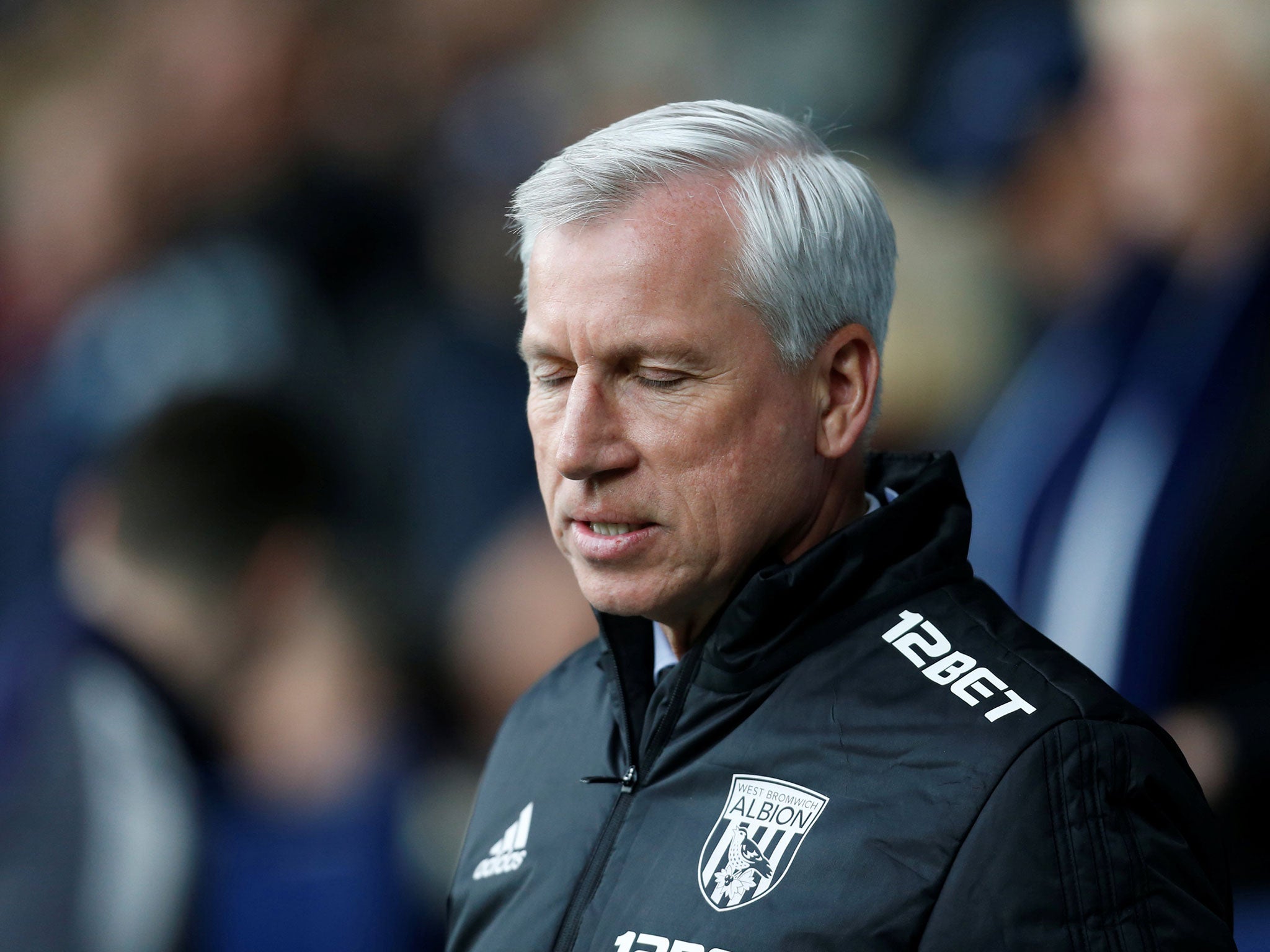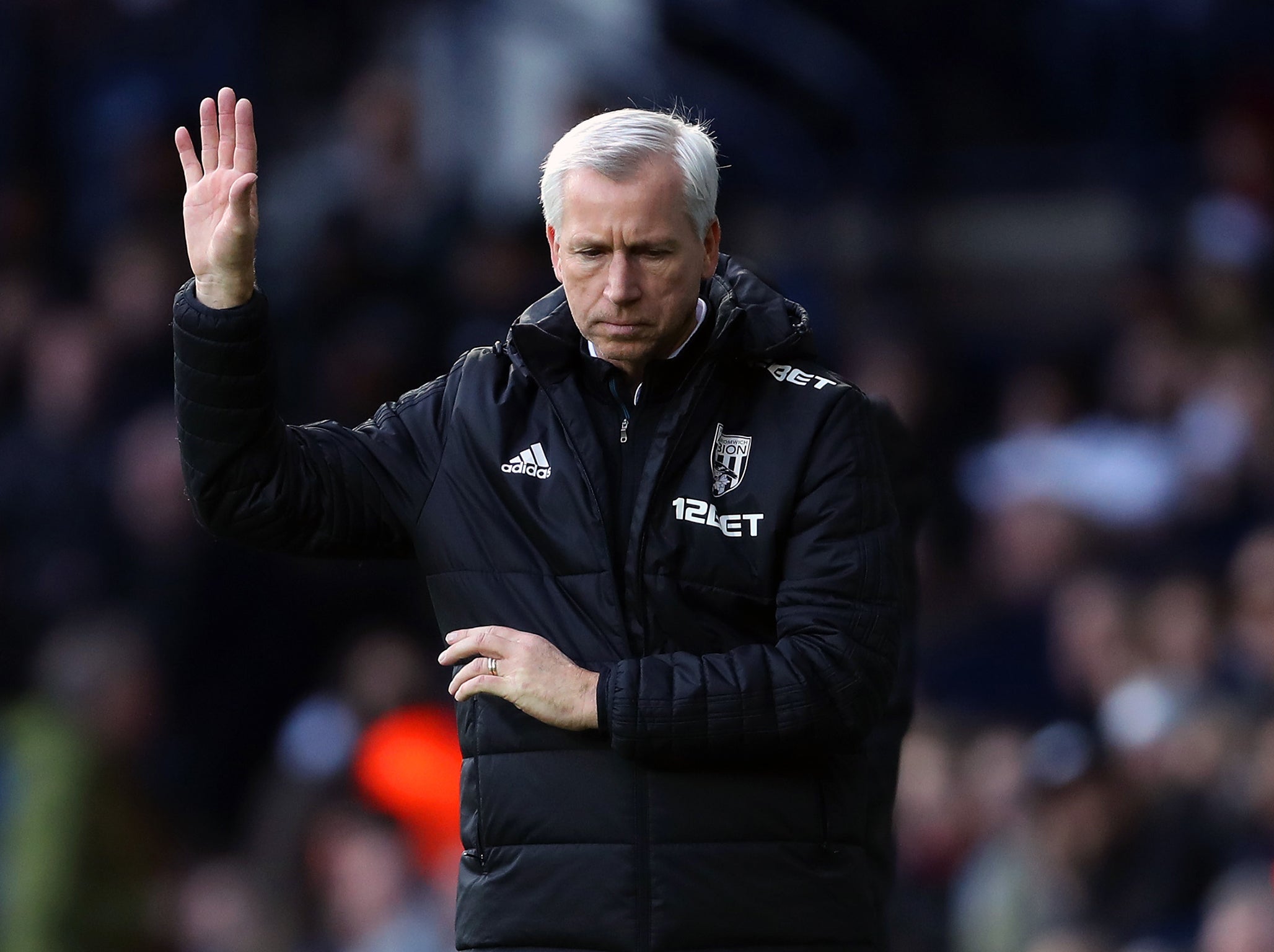Why Alan Pardew's departure from West Brom says more about the Premier League than meets the eye
The Premier League is a competition where the long-term financial outlook is so healthy it has led to around half of its clubs constantly thinking in the short term

By the time the West Brom board finally made the decision to dispense with Alan Pardew, there were any number of reasons to get rid – specifically 13 defeats from a mere 19 games, and a gap of 10 points to safety – but the ill-fated mid-season trip to Barcelona is said to have been a considerable issue for many in the hierarchy. Four players getting fined reflected what might well go down as one of the most farcical ways a team has ever gone down. It had got that bad, and this at a club that had until relatively recently been seen as a model of organisation.
So much for that.
So much, too, for the stability from the Premier League knowledge that Pardew was supposed to bring to keep them in the division.
This is where the story of West Brom’s virtually certain demise touches on a bigger theme for the competition, just as they are about to drop out of it. When the club first appointed Pardew in November, he was picked over candidates like Aitor Karanka because of that knowledge and history in the Premier League, but also because the hierarchy hoped that he would prolong a trend of his career.
The 56-year-old’s managerial methods are such that there is usually an initial and prolonged positive effect, before a tail off. The difference between the brilliant 2011-12 season and struggle of a 2012-13 campaign at Newcastle United was probably the clearest example of this. West Brom were conscious off that eventual drop-off, too, but were willing to overlook it to benefit from the other side of the trend and stay up.
Except, it never happened. There never was that initial positive impact. Having been the subject of some triumphalist discussion from some quarters about how Pardew’s appointment was a further illustration of the revival of his generation of British coaches like David Moyes and Sam Allardyce, the former Crystal Palace player found that his methods were getting no reaction at all.
Pardew himself had one curious reaction to this. To add to the farce of this campaign, former West Brom manager Gary Megson made the following claim on the You Are The Ref International youtube show, when discussing Pardew succeeding him after a brief stint as caretaker this season ().
“Alan Pardew rang me up, he says ‘just ringing you up to thank you for what you’ve done the last 10, 11 days but you’ve stolen me thunder a little bit because usually when you go in as a new manager you’re picking it up from something that’s gone on and you can give it that lift but the lift had already started.”
Except, Pardew couldn’t continue it. He instead continued other trends, that the club did not want.
Pardew has become the 10th manager sacked this season, meaning the 2017-18 campaign has matched the record set by 2013-14. Part of that, and even more pointedly, he has joined Aston Villa’s Remi Garde, Fulham’s Rene Meulensteen and Newcastle United’s Joe Kinnear as one of those managers specifically brought in to save a club but then not even allowed to go down with the ship.
It’s difficult not to see how that trend will continue, especially since the Premier League’s broadcasting money has now created something of a contradiction for the division.
The competition has become so sensationally successful at selling itself as “a show” that the riches are so great, but then ironically mean the need to stay in the show is all the greater, and that panics clubs into decisions at the first sign of trouble.

This was one big reason why so many of that older generation of managers were given mid-season jobs, because their old know-how was seen as more valuable for right now than new ideas. The bottom line is that a competition where the long-term financial outlook is so healthy has led to around half of its clubs constantly thinking in the short term.
The bottom line for West Brom is that this was precisely what they were guilty of, but they were also guilty of ignoring a few other issues. In their rush to impose that supposed know-how or stability to stay in the division with an experienced manager, they can be accused of overlooking the complete lack of stability in Pardew’s Crystal Palace team at the end, and how there was obvious signs you could no longer rely on that old trend of his career.
That last point was emphatically proven, and is likely to be only emphasised by Pardew’s struggle to get a Premier League club for his next job. He may have to drop down a division, just as West Brom inevitably will.
For their part, the club are now willing to show a more patient approach than they did in November. West Brom want a progressive new manager, but are aware that they may be better off waiting until the summer because of how relegation – even one a new man was in no way responsible for – could colour things for the future. Michael Appleton is the favourite, but he may have to wait.
The entire Pardew episode however shows that is something that half the Premier League can no longer afford to do.
Join our commenting forum
Join thought-provoking conversations, follow other Independent readers and see their replies
Comments
Bookmark popover
Removed from bookmarks